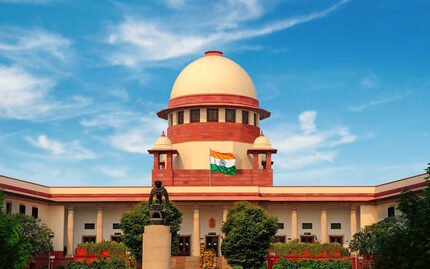Published on :
New Delhi: The Supreme Court on Tuesday expunged adverse observations made by the Karnataka High Court against the Additional Director General of Police (ADGP) of the Karnataka Anti-Corruption Bureau in a bribery case. (Seemant Kumar Singh v. Mahesh PS)
A Bench of Justices Krishna Murari and Ahsanuddin Amanullah stated in its order,
“Remarks passed in court, due to the live broadcasting of court proceedings, now have ramifications that are far reaching, and as can be seen in the present case, can cause great injury to the reputation of the parties involved. In such a circumstance, it is essential for the courts to be extremely cautious while passing adverse remarks against the parties involved, and must do so with proper justification, in the right forum, and only if it is necessary to meet the ends of justice.”
The case revolves around a police officer who was arrested on charges of taking a bribe. When the officer moved for bail, the High Court passed certain remarks against the State of Karnataka, ADGP Seemant Kumar Singh and the District Collector of Bengaluru, J Manjunath.
The affected parties moved the Supreme Court seeking to expunge these adverse remarks made by the High Court during the hearing.
The apex court noted that due to the proceedings being broadcast on the High Court’s YouTube channel, the said comments received wide publicity, and several media and news outlets have picked up on those comments and reported the same.
The Court held that such adverse remarks against the ADGP was a “gross abuse of the process of law.”
“…such remarks do not just cause injury to his reputation, but also has the potential to cause great prejudice to his actual trial…”
While directing the remarks to be expunged, the Court noted that bail proceedings, unlike a full criminal trial, are burdened with the task of only forming a prima facie view on the merits of the case.
“In such a circumstance when the evidence is not fully analyzed, and a presumption of innocence is still operational in favour of the accused, the courts must then be extremely cautious in passing adverse remarks against the accused. This becomes especially important in cases where the party against whom the remarks are passed do not have a lis in the said proceedings, for such comments, especially if passed by constitutional courts, can cause great injury to the reputation of the parties at the receiving end of such remarks,” reads the order.
Further, the Court noted that while this unprecedented transparency in the judicial system brings with it great benefits, it also attaches with it “a stricter standard of responsibility on judges while conducting such court proceedings.”
It thus not only expunged the adverse remarks passed by the High Court against the appellants, but also quashed the interim order passed by the High Court.
The appellants were represented by Senior Advocates Ranjit Kumar and Amit Kumar, assisted by advocate Shaurya Sahay and advocate-on-record Avijit Mani Tripathi.
During a hearing in the bribery case in July last year, Justice HP Sandesh of the Karnataka High Court divulged controversial details regarding threats of transfer he received for monitoring certain cases being handled by the ACB.
The single-judge revealed that another sitting High Court judge informed him of the same after that judge was approached by some persons.
“Your ADGP so powerful (unclear). Some persons spoke to one of our High Court judges. That judge came and sat with me and he said giving an example of transferring of one of the judge to some other district. I will not hesitate to mention the name of the judge also! He came and sat by the side of me and there is a threat to this court,” Justice Sandesh had said.
On July 7, the judge passed an order giving reasons for his oral observations against the ADGP and the ACB, saying that they were not working for the benefit of the institution.
In his order, the single-judge had explained that despite material being available on record, the ACB did not take any action against a Deputy Commissioner who was accused of receiving a bribe for a favourable order.
Justice Sandesh made it clear that he was unafraid of putting his post on the line for the public good.
“I am not affiliated to any political party. I am not having an ideology of any political party. I am affiliated to the Constitution… I am not aiming to go and sit in the Supreme Court, I am not worried… I am son of a farmer. I will till the land and feed few people,” he said.
The ACB, ADGP and J Manjunath then approached the top court against that order.



